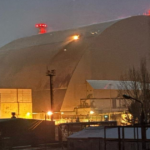On February 14, the annual Munich Security Conference (MSC 2025) kicked off in Munich, bringing together world leaders, diplomats, and military experts. One of the key topics of the event is the war in Ukraine, along with the global challenges facing the modern world.
The conference will last three days – from February 14 to 16, and it is expected that its outcomes will influence international policy. Let’s consider the statements that have already been made and what Ukraine can expect from this event.
Who is participating in the conference?
Among the participants of MSC 2025 are high-ranking officials from various countries around the world. It is already known that the event will be attended by:
- Ukrainian Minister of Defense Rustem Umerov;
- NATO Secretary General Mark Rutte;
- Vice President of the United States Jay Dee Vance;
- German Minister of Defense Boris Pistorius;
- Representatives from the Donald Trump administration, including Keith Kellogg.
Main politicians’ statements
Pistorius: “Putin – a threat to Europe”
German Minister of Defense Boris Pistorius clearly expressed at the conference the danger posed by Russia. He emphasized that even after a possible peaceful resolution of the war, the Kremlin will continue its hybrid aggression against the West.
“Putin will continue to attack us in a hybrid manner. He will remain a threat to our continent,” Pistorius stated.
Negotiations between Ukraine and the US
It is expected that Volodymyr Zelensky will hold a meeting with representatives of the US, including:
- Kit Kellogg – Donald Trump’s special envoy for Ukraine and Russia;
- Jay Dee Vens – Vice President of the USA;
- Marco Rubio – Secretary of State of the USA.
Earlier there was information that Kellogg will present Trump’s plan on ending the war in Ukraine at the conference. However, he denied these rumors, indicating a lack of agreed proposals for a peaceful resolution.
Theme of the MSC 2025 report: multipolarity of the world
Every year, a report with key findings is published after the conference. MSC 2025 focuses on the issue of multipolarity – a new model of international relations where global power is distributed among various states rather than concentrated in the hands of the USA or Europe.
The report highlights the following global processes:
- The US shifting focus from Europe to China;
- India, Brazil, South Africa aiming for greater influence in international politics;
- China becoming the main supporter of a multipolar world;
- Russia attempting to disrupt the existing world order.
One of the key conclusions of the report is the possible reduction of the US role as a guarantor of European security. This could affect Ukraine, as US military support may become less stable.
What does this mean for Ukraine?
The conference outcomes may determine the course of the war against Russia and international support for Kyiv. The main needs for Ukraine are:
- Maximum pressure on Russia through sanctions;
- Enhanced military support, including modern missile defense systems;
- Security guarantees and further integration with NATO.
The changes in global politics can create new challenges, but at the same time – new opportunities for Ukraine. United actions of the civilized world can stop the aggressor and protect the international order from the Kremlin’s destructive policies.
Conclusions
The Munich Security Conference 2025 has provided a platform for important discussions about the future of Ukraine and the global order. Statements from world leaders demonstrate that the West recognizes the threats from Russia, but the question of supporting Ukraine remains open.
In the coming days, new meetings are expected that could influence future decisions regarding the security of Ukraine and Europe. Let’s stay tuned for further developments!

